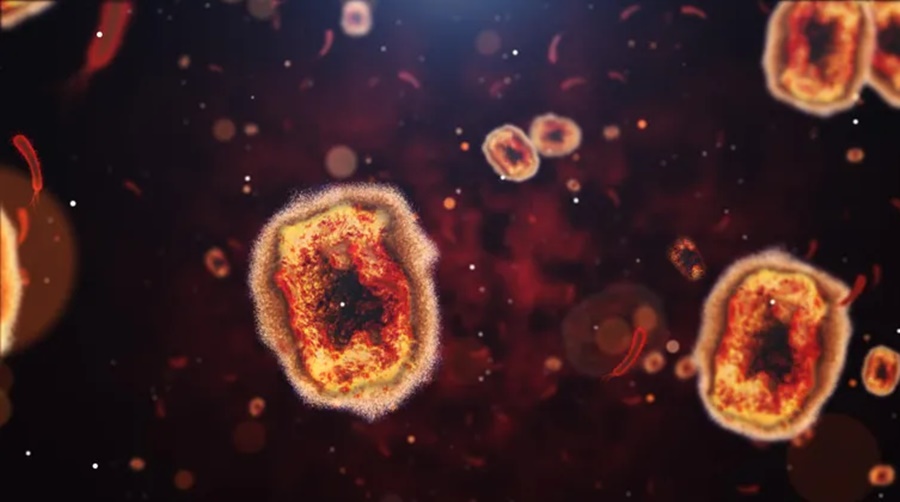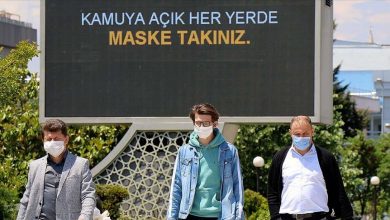Monkeypox: WHO declares maximum alert
The World Health Organization (WHO) declared monkeypox a global health emergency following a surge in cases around the world.

The classification is the highest alert that the WHO can issue and the decision was made this Saturday after a second meeting of the agency’s emergency committee on the virus. / Monkeypox: WHO declares maximum alert
This was announced by the director general of the WHO, Dr. Tedros Adhanom Ghebreyesus, two days after an emergency committee with experts in this disease met for the first time to analyze the possible declaration, which will force national health networks to increase its preventive measures.
More than 16,000 cases have been reported in 75 countries so far, according to Tedros.
The WHO director added that so far five people have died after becoming infected.
There are currently only two other such health emergencies: the coronavirus pandemic and the ongoing effort to eradicate polio.
Shortly after the news broke, the European Commission said it was “prepared to step up” the bloc’s response to monkeypox.
“Today WHO declared monkeypox a global public health emergency. We have been actively monitoring the situation since day one and monkeypox vaccines are already being delivered to our Member States. We are ready to step up our EU response,” wrote the European Commissioner for Health, Stella Kyriakides, on her Twitter profile.
However, she pointed out that smallpox has spread rapidly around the world, becoming an international concern.
“The WHO assessment is that the risk of monkeypox is moderate globally and in all regions except Europe, where we assess the risk as high,” she said.
“It can be stopped with the right strategies” / Monkeypox: WHO declares maximum alert
She also stated that there is a risk of it spreading further internationally and that very little is still known about the new modes of transmission that allowed its spread.
According to Tedros Adhanom Ghebreyesus, this declaration will help speed up the development of vaccines and prompt the implementation of measures to limit the spread of the virus.
Similarly, the WHO is issuing recommendations that it hopes will lead countries to take measures to stop the transmission of the virus and protect people most at risk.
“This is an outbreak that can be stopped with the right strategies in the right groups,” she concluded.
Monkeypox was first found in central Africa in the 1950s.
How do you get infected?
Monkeypox can be spread when someone is in close contact with an infected person.
Epidemiologist Enrique Pérez, adviser on Disease Prevention and Control of the Pan American Health Organization (PAHO), said that it is transmitted through large exhaled droplets.
It can enter the body through broken skin, the respiratory tract, or the eyes, nose, or mouth, and has an incubation period of 6 to 13 days, although it can be as long as 21 days.
Viral excretion through feces can also be a route of transmission of the virus.
Although it is called “monkeypox”, it is also transmitted by rodents, marsupials and other primates. PAHO noted that the population “should avoid handling animals.”
It can also be spread by contact with infected animals or by objects contaminated with viruses, such as clothing.
An important step
Analysis by James Gallagher, BBC Health and Science Correspondent
Declaring a global emergency is a significant act.
It is a rallying cry for countries to take the virus seriously, it helps raise awareness around the world, and it can help poorer countries get the tools they need to control monkeypox.
In principle, we have the tools to stop the virus. Monkeypox does not spread as easily as covid and we already have a vaccine developed for smallpox that offers good protection.
And while anyone can get monkeypox, the outbreak overwhelmingly affects gay and bisexual men, as well as other men who have sex with men.
This can make the outbreak easier to address, as vaccine and public health information efforts can be targeted to people who are most at risk.
But, he reminds him, there are still countries where same-sex relationships are illegal, and stigma and persecution can act as a barrier.
Stopping monkeypox will be as socially and culturally challenging as the virus.
Monkeypox pathogens mutate heavily
Monkeypox – WHO reviews public health emergency
Belgium sends people infected with monkeypox into quarantine



